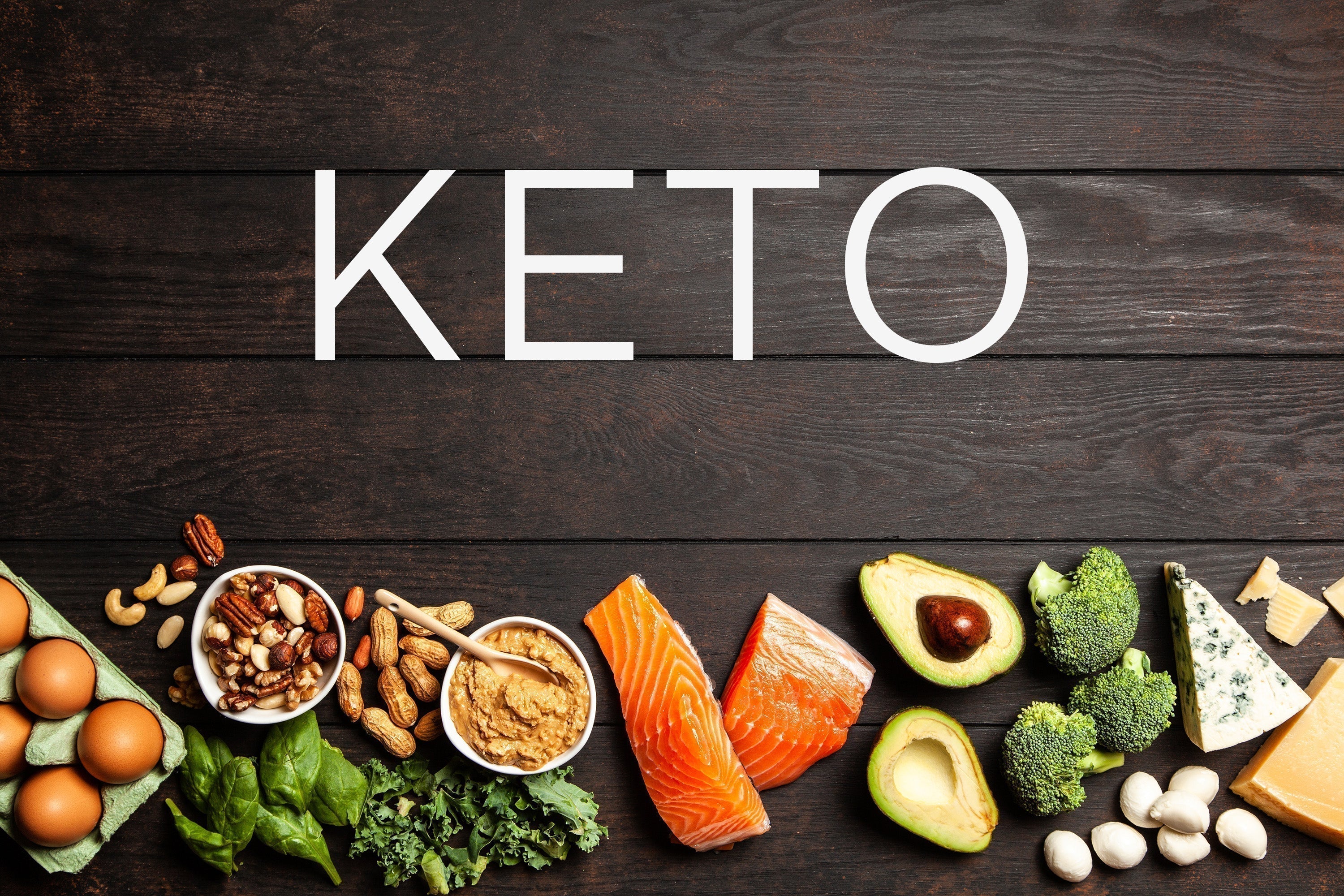Electrolytes play a crucial role in keeping our bodies properly hydrated and functioning at their best. From regulating fluid balance to supporting muscle contractions and nerve signals, they are essential for overall health. But, like anything, balance is key. While electrolyte depletion can lead to dehydration and other serious health issues, it’s also possible to overdo it.
In this article, we’ll explore the question: Can you have too many electrolytes?
We’ll dive into the potential risks of excessive electrolyte consumption, what symptoms to watch out for, and how to ensure you’re getting just the right amount to support your wellness journey. Whether you’re an athlete, someone with a busy lifestyle, or just someone who wants to optimize hydration, understanding electrolyte balance is key to staying healthy and energized.
What Are Electrolytes?
Electrolytes are minerals that carry an electric charge and are vital to the body’s ability to function properly. These charged particles are essential for a wide range of bodily functions, including maintaining fluid balance, supporting muscle contractions, and transmitting nerve signals.
Without electrolytes, your body wouldn’t be able to regulate its systems efficiently, which is why electrolyte balance is so important.
The main electrolytes in the body are sodium, potassium, calcium, magnesium, chloride, bicarbonate, and phosphate. Here’s a brief look at how each one works:
-
Sodium: Helps regulate fluid levels in the body, particularly in and around cells, tissues, and organs. It’s essential for maintaining blood pressure and volume.
-
Potassium: Vital for proper muscle function and regulating heart rhythms. It works in balance with sodium to manage fluid and electrolyte levels inside cells.
-
Calcium: Most commonly associated with strong bones and teeth, calcium also plays a key role in muscle function and nerve transmission.
-
Magnesium: Supports muscle relaxation, nerve function, and enzyme activity. It also helps maintain healthy bones and energy production.
-
Chloride: Plays a key role in regulating the body’s acid base balance, ensuring a stable pH level.
While these minerals are naturally present in the foods we eat, they are also available in supplements and beverages, such as Vaya’s powdered drink sticks. These are a convenient and balanced way to replenish electrolytes when needed—without the added sugars and excess calories often found in traditional sports drinks.
Understanding the importance of each of these electrolytes can help you make informed decisions about how to best support your hydration needs. But just like any nutrient, moderation is key—too much or too little of any of these electrolytes can cause serious health issues.
The Importance of Electrolyte Balance
While electrolytes are essential for a range of bodily functions, it’s not just the presence of these minerals that matters—it’s the balance between them. Maintaining the right ratio of electrolytes is crucial to your body’s ability to manage hydration, regulate muscle function, and support nervous system communication.
Electrolytes work together in a delicate equilibrium.

For instance, sodium and potassium operate in tandem to regulate fluid balance within your cells. Sodium typically works outside the cells, helping retain water in the bloodstream, while potassium is concentrated inside the cells, helping to maintain their structure and fluid levels.
When the balance between these two is disrupted, problems such as dehydration, muscle cramps, or even more serious conditions like kidney damage can arise.
A slight shift in the balance of electrolytes can lead to noticeable changes in your health. For example:
-
Too much sodium can lead to water retention and increased blood pressure, while too little sodium (hyponatremia) can result in nausea, headache, and in extreme cases, seizures.
-
Excessive potassium (hyperkalemia) can cause irregular heart rhythms or muscle weakness, while potassium deficiency (hypokalemia) can lead to fatigue, muscle cramps, and digestive issues.
Maintaining electrolyte balance is particularly important for people who exercise, live in hot climates, or suffer from certain health conditions.
Sweating during physical activity or exposure to heat can lead to significant loss of electrolytes, which is why athletes often rely on electrolyte beverages such as Vaya or electrolyte supplements to replenish their stores.
Vaya’s electrolyte powder offers a carefully formulated blend of electrolytes—without the excess sugar or calories found in many commercial sports drinks—making it an excellent option for maintaining balance while staying hydrated.
In the next section, we’ll discuss the potential dangers of consuming too many electrolytes, as well as how to recognize and manage any imbalances.
Read More: The Balanced Electrolytes Approach
Can You Have Too Many Electrolytes?
While electrolytes are essential for health, the body’s ability to regulate them is not limitless. Just as a deficiency can lead to dehydration or muscle cramps, an excess of electrolytes can also create serious health issues. This is why it’s important to be mindful of how much you’re consuming, especially if you’re relying on supplements or drinking large amounts of sports drinks.
Excessive intake of certain electrolytes can lead to a condition known as electrolyte toxicity or electrolyte imbalance, where the concentration of electrolytes in the blood becomes too high or too low. The most common risks come from sodium and potassium, both of which are vital to maintaining hydration and muscle function, but can become harmful when overconsumed.
Here are a few key examples of what happens when electrolyte levels get too high:
-
Too much sodium (hypernatremia) can lead to water retention, causing swelling and elevated blood pressure. In severe cases, it can result in confusion, seizures, or even coma.
-
Too much potassium (hyperkalemia) can interfere with heart function, causing irregular heart rhythms or even cardiac arrest in extreme cases. This is particularly dangerous for individuals with kidney disease or those taking certain medications that affect potassium levels.
-
Excess calcium (hypercalcemia) can result in fatigue, kidney stones, and irregular heart rhythms. It can also interfere with the absorption of other minerals like magnesium and phosphorus.
-
Excess magnesium (hypermagnesemia) can cause lethargy, respiratory issues, and even heart failure in severe cases.
While these extreme cases are rare, it’s still important to understand the risks of overconsumption. Some individuals may be more susceptible to electrolyte imbalances due to underlying health conditions, such as kidney disease, heart disease, or high blood pressure.
It’s also easy to overdo it if you’re consuming multiple electrolyte-rich drinks or supplements without paying attention to the recommended daily intake.
That’s where moderation comes in. The body is designed to handle small amounts of extra electrolytes, but it’s crucial to balance intake with your body’s needs. In the next section, we’ll discuss how to determine the right amount of electrolytes for your lifestyle and how to use products like Vaya electrolyte powders responsibly.
How Much Electrolyte Is Too Much?
Understanding how much electrolyte is too much depends on several factors, including your activity level, the climate you live in, and your overall health. While there's no one-size-fits-all answer, general guidelines can help you determine the right amount of electrolytes to support your hydration and health goals.
General Daily Recommendations
Most people get sufficient electrolytes through their diet, as many foods naturally contain key electrolytes. However, if you’re exercising heavily or experiencing significant sweating (due to heat, exercise, or illness), you may need to replenish these minerals more frequently.
Here are some general recommendations from health experts for daily electrolyte intake:
-
Sodium: The recommended daily intake is about 2,300 mg for healthy adults, but most people consume far more. While sodium is essential for hydration, excess intake can contribute to high blood pressure and other cardiovascular issues.
-
Potassium: The recommended intake for adults is around 3,500 to 4,700 mg per day. Potassium helps balance sodium’s effects and is critical for muscle and nerve function.
-
Calcium: Adults should aim for about 1,000 mg per day (1,200 mg for women over 50). Calcium helps maintain strong bones and supports nerve and muscle function.
-
Magnesium: The recommended intake for adults is around 310-320 mg for women and 400-420 mg for men. Magnesium helps regulate muscle and nerve function and supports the immune system.
Factors That Affect Electrolyte Needs
Certain conditions can increase your body’s need for electrolytes, and understanding your specific needs can help you avoid both deficiency and excess:
-
Exercise and physical activity: High-intensity or prolonged exercise (especially in hot weather) leads to the loss of electrolytes through sweat. If you’re an athlete or workout enthusiast, replenishing your electrolytes post-exercise is vital to avoid imbalances.
-
Climate and heat: Hot weather increases the amount you sweat, which can result in more significant electrolyte loss. This is especially true for those working or exercising outdoors.
-
Health conditions: Certain medical conditions, such as kidney disease, heart disease, or diabetes, can affect how your body processes electrolytes. If you have any chronic conditions, you should consult a healthcare provider about your specific electrolyte needs.
-
Diet: If your diet lacks essential electrolytes (e.g., not eating enough fruits, vegetables, or dairy products), you may need to rely on supplements or fortified drinks to maintain balance.
Using Electrolyte Hydration Products Wisely
Products like Vaya Sugar-Free Electrolyte Powder Packets can be an excellent tool for replenishing electrolytes, but it’s important to use them responsibly. One serving of VAYA’s product is designed to deliver a balanced dose of electrolytes without the added sugars and empty calories that can be found in many traditional sports drinks.
For most people, a single serving after a workout or during periods of high heat is sufficient. However, it’s important not to over-consume electrolyte powders, as doing so can contribute to excess sodium, potassium, or magnesium in the body.
Pay attention to the recommended serving sizes and try to match your electrolyte intake with your individual needs.
Safe Ways to Consume Electrolytes
Maintaining a healthy balance of electrolytes is about more than just consuming the right amount—it’s also about knowing how to consume them safely. Here are some practical tips for incorporating electrolytes into your daily routine without overdoing it:
1. Focus on Whole Foods First
The best way to get your electrolytes is through a balanced diet that includes foods rich in key minerals. Here are some common sources:
-
Sodium: While most people get more than enough sodium from processed foods, natural sources like coconut water, sea salt, or foods like soups, broths, and certain vegetables can be good sources when used in moderation.
-
Potassium: Found in abundance in fruits like bananas, oranges, and melons, as well as vegetables like spinach, potatoes, and avocados.
-
Calcium: Dairy products (like milk, cheese, and yogurt), leafy greens (like kale and bok choy), and fortified non-dairy milks (such as almond or soy milk) are excellent sources.
-
Magnesium: Nuts, seeds, legumes, whole grains, and leafy green vegetables like spinach and Swiss chard are all great sources of magnesium.
When possible, aim to meet your electrolyte needs through a varied and nutrient-rich diet. This approach supports overall health and ensures your electrolytes are balanced within the context of your overall nutrition.
Read More: The Power of Hydration
2. Use Added Electrolyte Sources Responsibly
While whole foods are ideal, electrolyte drinks—like VAYA’s powdered drink sticks—can be a convenient way to replenish electrolytes during periods of heavy sweating, physical activity, or illness. But it’s important to use them wisely:
-
Read the Label: Always check the recommended serving size and don’t exceed it. Overconsumption can lead to electrolyte imbalance.
-
Monitor Your Intake: Keep track of how much sodium, potassium, calcium, and magnesium you’re consuming through both food and supplements. Ensure that you’re not getting too much of any one mineral.
-
Hydration First: Electrolyte supplements or drinks should never replace regular hydration. Drink plenty of water before, during, and after physical activity to maintain optimal fluid levels.
3. Customize to Your Activity Level
The more intense your physical activity, the more electrolytes you lose through sweat. If you’re exercising for an hour or more, especially in hot weather, added electrolytes can help you replenish lost minerals. However, for shorter workouts or casual activities, plain water may be sufficient for hydration.
Tailor your electrolyte intake to the intensity and duration of your exercise routine. If you're unsure how much you need, start with a moderate amount and adjust based on how your body feels during and after activity.
4. Consult a Healthcare Professional
If you have any underlying health conditions—especially kidney disease, heart disease, or hypertension—consult with a healthcare provider before adding extra electrolytes. Certain conditions can affect your body’s ability to process minerals, and your doctor can provide personalized advice on how to safely incorporate electrolytes into your routine.
5. Listen to Your Body
Finally, always listen to your body. If you’re feeling dizzy, crampy, or fatigued, it might be a sign of an electrolyte imbalance. If you experience symptoms like irregular heartbeat, confusion, or extreme weakness, seek medical attention immediately, as these could be signs of more severe electrolyte imbalances.
By consuming electrolytes mindfully and in moderation, you can help keep your body in balance and support your overall health and hydration needs.
Conclusion
Electrolytes are essential for keeping your body hydrated, your muscles working properly, and your nerves firing on all cylinders. However, like most things, balance is key. Too few electrolytes can lead to dehydration, fatigue, and muscle cramps, while too many can cause serious health risks like irregular heart rhythms and high blood pressure.
The good news is that by understanding your body’s needs, paying attention to your activity level, and using electrolyte drinks like Vaya’s powdered electrolyte sticks with zero sugar, one gram of carbs and ten calories per serving responsibly, you can maintain that perfect balance.
Whether you're an athlete looking to optimize performance, someone living in a hot climate, or just someone striving for better hydration, keeping your electrolytes in check is essential for long-term health and wellness.
Remember, hydration isn't just about drinking water—it's about giving your body the minerals it needs to function properly. By following the right guidelines and making smart choices, you’ll be well on your way to maintaining optimal electrolyte levels, supporting your health, and wellness journey.
Disclaimer
The information provided on this website is for educational and informational purposes only and should not be construed as medical advice. Vaya does not provide medical or health diagnoses, treatments, or recommendations. The content herein is based on our own research and findings and is not intended to substitute for professional medical guidance, diagnosis, or treatment. If you have any concerns regarding your health, we strongly encourage you to consult a licensed healthcare professional.








Share:
Why Electrolytes are Essential for a Keto Diet: Tips for Staying Hydrated
Why Runners Need Electrolytes: Benefits and Best Options